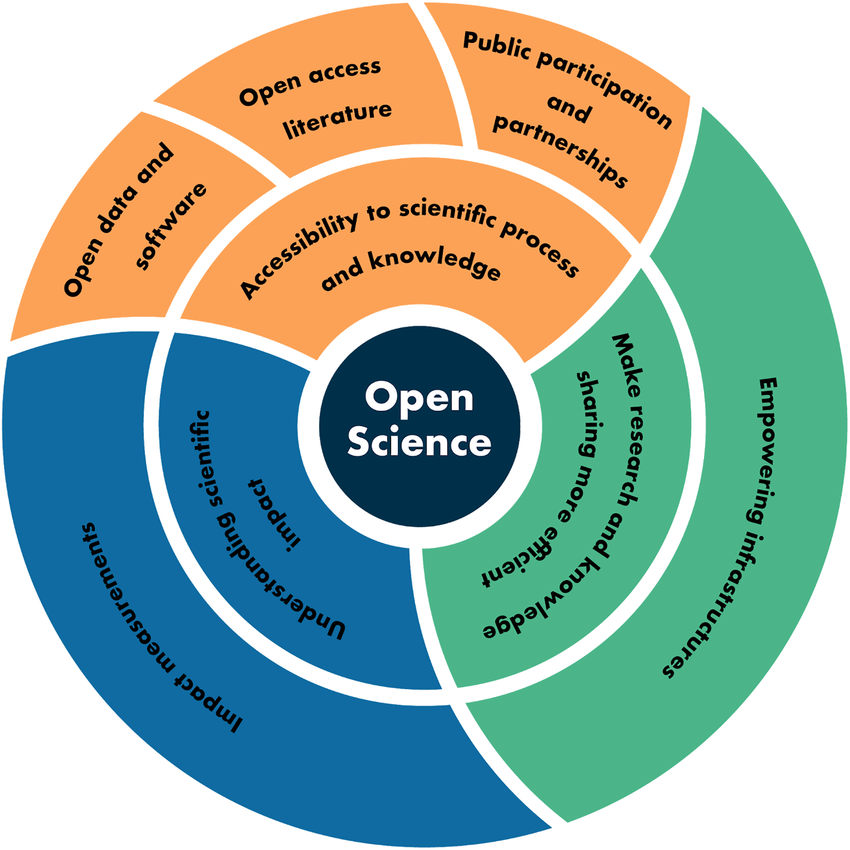
Open Science: The Invisible Revolution in Your Everyday Life
Open Science: The Invisible Revolution in Your Everyday Life https://opusproject.eu/wp-content/uploads/2024/06/The-open-science-concept-represented-as-layers-The-concept-of-open-science-is-found-in-1.png 850 850 Open and Universal Science (OPUS) Project Open and Universal Science (OPUS) Project https://opusproject.eu/wp-content/uploads/2024/06/The-open-science-concept-represented-as-layers-The-concept-of-open-science-is-found-in-1.pngIn recent years, there’s been a quiet but profound transformation sweeping through the world of research and innovation—open science. You may not realize it, but open science is likely influencing your daily life in more ways than you know. From the development of new medications to the accuracy of your weather forecast, this movement is reshaping the way knowledge is created and shared, benefiting society in subtle yet significant ways.
The Essence of Open Science
Open science is about making scientific research and data accessible to everyone. This includes sharing research papers, datasets, and methodologies freely online, enabling collaboration and transparency. The core principles are openness, accessibility, and the democratization of knowledge, ensuring that scientific progress is not confined to elite institutions or behind paywalls.
Everyday Encounters with Open Science
1. Health and Medicine: One of the most tangible impacts of open science is in healthcare. The rapid development of COVID-19 vaccines was accelerated by unprecedented levels of data sharing and collaboration across the globe. Researchers openly shared findings, genomic sequences, and clinical trial data, allowing for quicker peer reviews and iterations. This open approach continues to influence ongoing research into treatments and vaccines for other diseases.
2. Technology and Innovation: Open science fuels technological advancements that you use every day. Open-source software, a cornerstone of open science, powers your smartphones, computers, and the internet. Innovations like the World Wide Web and the Linux operating system were born from principles of openness and collaboration. Even major tech companies like Google and Microsoft contribute to and benefit from open-source projects, enhancing the tools and services you rely on.
3. Environmental Awareness: Climate science is another area where open science plays a crucial role. Researchers globally share climate models, environmental data, and findings on platforms like the Intergovernmental Panel on Climate Change (IPCC). This openness allows for more accurate climate predictions and informed policy decisions. It also empowers citizen scientists and activists to contribute to and disseminate knowledge about environmental issues.
4. Education and Learning: Open educational resources (OER) are transforming how we learn. Free access to high-quality textbooks, lecture notes, and courses from top universities is democratizing education. Platforms like Coursera, edX, and Khan Academy offer vast repositories of knowledge accessible to anyone with an internet connection, breaking down traditional barriers to learning.
5. Journalism and Media: Data journalism is another area enriched by open science. Journalists use openly available datasets to create insightful stories that hold institutions accountable and inform the public. Whether it’s tracking election results, analyzing public spending, or investigating environmental data, the availability of open data empowers journalists to produce more in-depth and accurate reporting.
The Future of Open Science
The momentum behind open science is growing, driven by both technological advancements and a cultural shift towards greater transparency. Governments and funding bodies increasingly mandate open access to publicly funded research. Institutions are adopting open data policies, and researchers are embracing preprint servers and open-access journals.
However, challenges remain. Issues of data privacy, the digital divide, and ensuring the quality and reproducibility of openly shared research need ongoing attention. The scientific community must navigate these challenges while continuing to advocate for the principles of openness and collaboration.
A New Paradigm for Progress
Open science is an invisible force that touches many aspects of our lives. It’s revolutionizing healthcare, driving technological innovation, enhancing environmental understanding, democratizing education, and enriching journalism. By breaking down barriers and fostering a culture of sharing and collaboration, open science is not just a trend but a transformative approach that promises a more inclusive and knowledgeable society. So next time you marvel at a scientific breakthrough or benefit from cutting-edge technology, remember that open science is likely playing a crucial role behind the scenes.
Photo via ResearchGate
- Posted In:
- Open Science News




